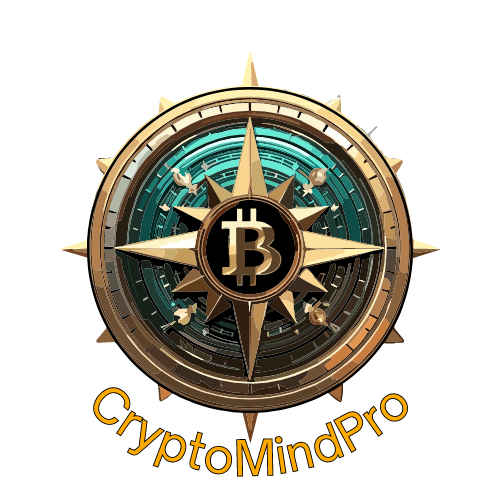The emergence of DeFi, or decentralized finance, represents not just a technological breakthrough in blockchain-based finance, but an essential ethos shift toward financial inclusion. At the heart of DeFi lies the belief that finance should be accessible, promoting economic participation and financial empowerment universally. This progressive approach ushers in an era of innovative fintech that promises to disrupt conventional banking systems with a network that’s not only open and transparent but permits users from all corners of the globe to become active participants in the economy regardless of their status or location.
In this insightful landscape, Michael McNaught’s “Unlocking the Future of Financial Freedom” elegantly crafts an allegory for the uninitiated, illuminating a world where everyday individuals can lend, borrow, and trade directly amongst themselves. Poetically envisioning the DeFi space as a beacon of innovation, it beckons a future unchained from traditional financial intermediaries, employing smart contracts to ensure transactions that are seamless, rapid, and secure.
Key Takeaways
- DeFi is revolutionizing the finance sector by providing an open, transparent, and accessible framework for financial transactions.
- Blockchain technology is the backbone of this inclusive system, ensuring fairness and unlocking potential for broad economic participation.
- Decentralized finance empowers individuals by removing the need for traditional banks and financial intermediaries.
- Through DeFi, innovative fintech becomes a pathway to not just financial freedom but also to an inclusive financial ecosystem.
- Michael McNaught’s educational approach demystifies DeFi, setting the stage for understanding its role in advancing financial inclusion.
Exploring the Foundations of Decentralized Finance (DeFi) and Its Role in Financial Inclusion
Decentralized finance (DeFi) is redefining the landscape of the financial industry, carving out a global ecosystem of digital financial services that are open, reliable, and clear. In contrast to traditional banking—often referred to as “TradeFi”—DeFi’s non-regulated blockchain framework simplifies finance, removing centralized authorities and granting individuals full control over their resources.
By championing peer-to-peer finance, DeFi encompasses a full spectrum of financial activities, from simple banking services to complex asset exchanges. The market for DeFi has seen remarkable growth since its inception in 2018, positioning itself as a tenet of innovation within the cryptocurrency space.
Powered by many layer one blockchains, DeFi is built upon a foundation of features that drive financial inclusion and develop inclusive financial systems. At its core are innovative financial tools such as programmable smart contracts, which automate and secure the inner workings of decentralized applications (dApps).
| Characteristic | Description | Impact on Financial Inclusion |
|---|---|---|
| Programmability | Smart contracts facilitate automated, customizable financial interactions. | Allows for the design of diverse and accessible financial products. |
| Immutability | Irreversible transaction records on the blockchain ensure security and transparency. | Provides a trustworthy environment incentivizing participation. |
| Interoperability | The ability for different decentralized protocols to interact seamlessly. | Enables users to combine services for tailored financial solutions. |
| Transparency | All transactions are verifiable by the network, offering full visibility. | Builds confidence among users through open access to financial activities. |
| Permissionless | No gatekeepers restricting access to financial services. | Ensures equal opportunities for participation regardless of location or identity. |
| Self-Custody | Users retain control over their financial assets and personal data. | Empowers individuals to be in charge of their financial destinies. |
Particularly consequential in its role in financial inclusion is DeFi’s dedication to decentralized lending. This facet of DeFi removes the historical impediments encountered in traditional finance, such as credit history checks and exorbitant fees, to provide underserved populations with opportunities for economic participation.
- Lending and borrowing directly between parties (peer-to-peer lending) democratizes access to capital and investment opportunities.
- The reliance on collateral rather than credit scores opens avenues for individuals without established credit histories.
- Innovative financial tools like yield farming and liquidity mining enable users to maximize their asset productivity.
As a result, DeFi is about more than the technology itself; it is about the promise of an equitable and inclusive financial future. By addressing the limitations of traditional financial institutions and rejecting their exclusionary practices, DeFi stands as a pillar of opportunity, security, and autonomy, inviting everyone to participate in the digital finance revolution.
DeFi and Financial Inclusion: Redefining Access to Financial Services
The ascent of DeFi, which is intrinsically linked to the idea of financial empowerment, has forged a new path towards constructing a financially inclusive world. As a pivotal force for the democratization of finance, DeFi thrives on its ability to offer a level playing field, powered by blockchain technology.
The Philosophy of Financial Empowerment through DeFi
Central to the ethos of DeFi is the unwavering commitment to inclusive fintech. This revolutionary concept addresses not only financial services but also economic agency and independence. It encourages individuals to utilize tools that grant them autonomy over their assets, highlighting the transformative impact of technology on personal wealth and community growth.
Leveraging Blockchain for Secure and Inclusive Financial Systems
Blockchain technology is at the heart of DeFi’s secure infrastructure, offering unprecedented levels of transparency and integrity. By enabling secure financial systems that protect against fraud and cyber threats, blockchain becomes a cornerstone of trust in this new financial paradigm.

Case Study: Ambit Finance’s Mission to Democratize Finance
Ambit Finance is an exemplar of pure innovation in leveraging DeFi and blockchain to enhance financial inclusion. Its purpose-driven model focuses on mitigating the barriers to access financial tools, capitalizing on user-friendly interfaces and educational resources to cultivate a financially informed populace. The company’s user-centric platform is a testament to the potential of DeFi in making headway towards a democratically accessible financial future.
User-Friendly Platforms Making Finance Accessible to All
The essence of inclusion in finance hinges not just on access but also on the ease of use. With that in mind, DeFi has triggered the development of user-friendly finance platforms, making it possible for every individual to engage confidently with financial systems. Simplified user interfaces, combined with guidance and support, ensure that DeFi’s promise extends to a broad user base, thus promoting greater literacy and participation within the DeFi market.
Asset Tokenization and Its Impact on Democratizing Investments
The concept of asset tokenization is rapidly reshaping the investment arena by seamlessly transforming tangible, high-value assets into tradeable digital tokens within the DeFi ecosystem. Visualize a world where exclusive paintings, real estate, and other valuables can be fractionally owned and effortlessly exchanged, not by a privileged few, but by a wide spectrum of investors. This innovation is key to democratizing investments, significantly lowering the barrier to entry for individuals who previously lacked the means to invest in such assets.

With such technologies at the helm, we see asset tokenization leading to a profound shift across various sectors. From finance, where it offers new forms of securities, to real estate, which has traditionally been illiquid, asset tokenization injects an unprecedented level of flexibility and accessibility. Moreover, the art industry stands to benefit immensely from this technological leap, making patronage and ownership attainable to a broader audience. That these developments align with a forecasted market valuation of $5.6 billion by 2026 only serves to underscore the vitality and momentum behind these transformative trends.
Frequently Asked Questions
| Question | Answer |
|---|---|
| Can DeFi help achieve financial inclusion? | Yes, DeFi can significantly contribute to financial inclusion by providing accessible financial services to unbanked or underbanked populations worldwide. Its decentralized nature eliminates the need for traditional banking infrastructure, allowing anyone with an internet connection to participate. |
| What is DeFi in financial inclusion? | In the context of financial inclusion, DeFi refers to the use of decentralized financial technologies to offer inclusive, accessible, and affordable financial services. This includes services like lending, borrowing, and savings, which are traditionally provided by banks, but without the centralized control and barriers. |
| How does DeFi affect financial services? | DeFi transforms financial services by introducing a decentralized model where transactions are conducted on a peer-to-peer basis without intermediaries. This model offers greater transparency, lower costs, and increased accessibility, potentially disrupting traditional financial services. |
| What is the difference between finance and DeFi? | Traditional finance (or TradFi) operates within a centralized system regulated by financial institutions and governments. DeFi, on the other hand, functions on a decentralized blockchain network, providing financial services without central authority, often leading to greater accessibility and reduced costs. |
| How secure are DeFi platforms? | DeFi platforms, being built on blockchain technology, offer high levels of security due to their decentralized and encrypted nature. However, they are not immune to risks like smart contract vulnerabilities or market volatility. Users should exercise caution and conduct thorough research. |
| Can DeFi replace traditional banks? | While DeFi has the potential to challenge traditional banking by offering alternative financial services, it is unlikely to completely replace banks in the near future. Banks offer a range of services and stability that DeFi is still developing. |
| What are the risks associated with DeFi? | The main risks in DeFi include smart contract vulnerabilities, regulatory uncertainty, market volatility, and the potential for fraud or scams. Due to its relatively new and rapidly evolving nature, DeFi carries higher risks compared to traditional finance. |
| How can I start using DeFi services? | To start using DeFi services, you need a digital wallet, some cryptocurrency like Ethereum, and a basic understanding of blockchain and smart contracts. Researching and choosing reputable DeFi platforms is also crucial for safety. |




